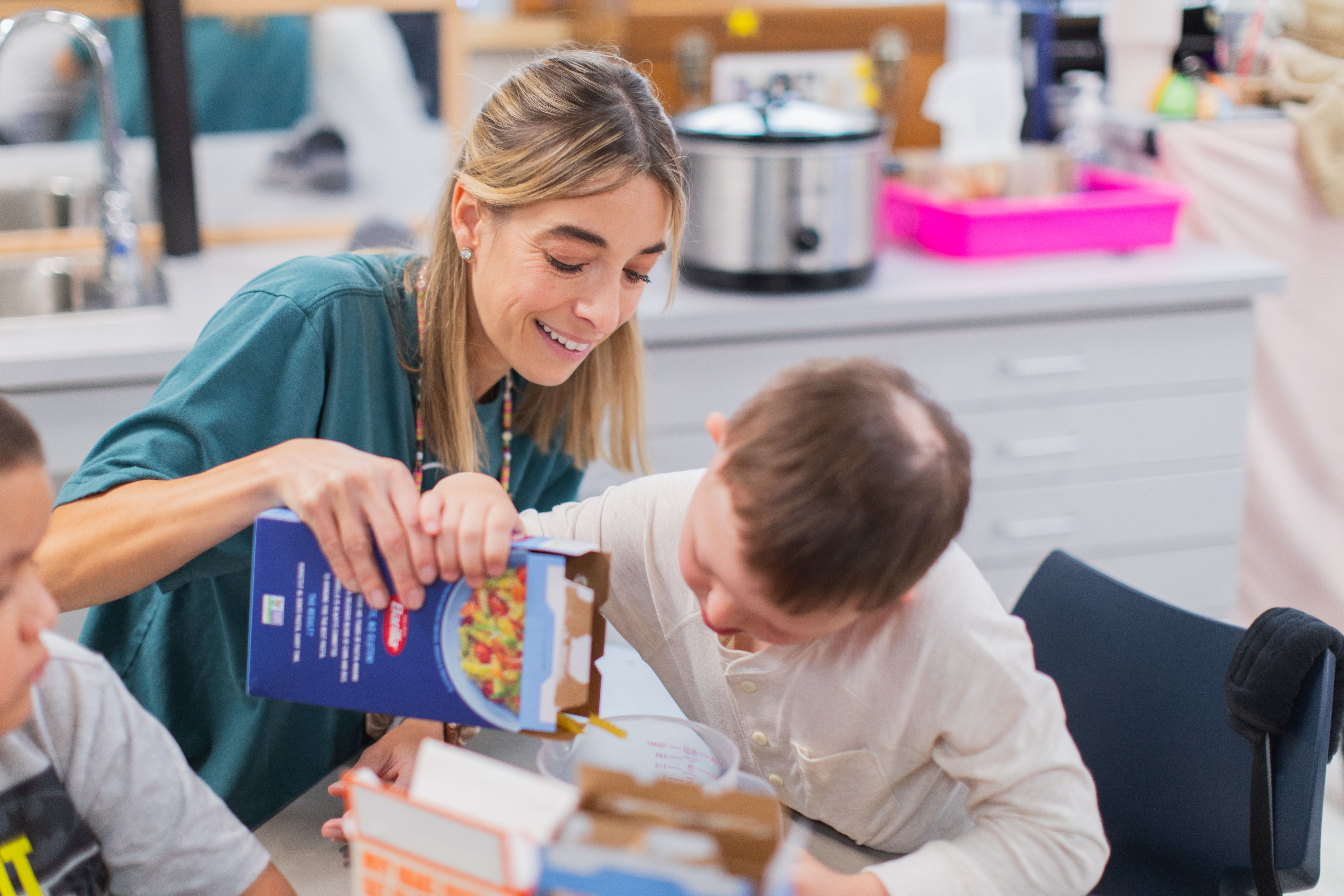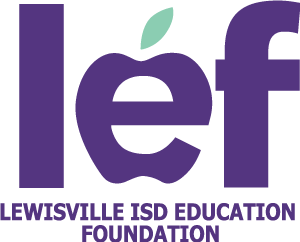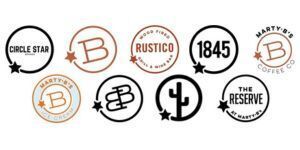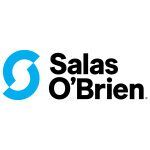
Krista Steinwender, an Academic Life Skills teacher for kindergarten through second grade at Forest Vista Elementary, is using her LEF grant to cook up brighter futures for her students. Thanks to the grant, her weekly cooking lessons are now more engaging and hands-on, with new tools like child-safe knives, vegetable peelers, rolling pins, and hand-held mixers enhancing the experience.
“At the beginning of the school year, we did not cook very often due to the supply restraints,” Steinwender said. “As much as we wanted to practice the true skills involved in cooking, we did not have the materials for students to do more than one or two cuts, stirs or pours. They enjoyed the participation aspect of the lesson, but it was not enough exposure to improve their skills.”
That changed after Steinwender received an LEF grant. Now her classroom is equipped with enough cooking supplies for each student to practice and improve their abilities.
“I wish I would have captured photos or videos of the students opening up all the Amazon boxes with our cooking supplies! They were elated,” she said. “They loved the different color cutting boards, couldn't wait to try out the small rolling pins with cookie dough, and were so excited to explore the hand-held mixer, which most of them had never seen before!”
New equipment brought a new level of enthusiasm to Steinwender’s classroom. With more time for each student to use kitchen supplies, Steinwender noticed decreased behavioral issues and increased engagement through each step of the cooking process.
“I saw a tremendous increase in effort and improvement in student behavior leading up to the cooking lessons because students were so eager to participate,” Steinwender said. “Not only were students excited about the actual cooking part, but there was more buy-in leading up to the lesson, so students were happy to get their work done of making the shopping list, reading the recipe, counting ingredients, and writing about what we were going to make.”
The impact of the cooking lessons on students' skills and confidence extends beyond the classroom.
“I've gotten reports that students are asking parents to help with dinner or prepare snacks - teaching functional life skills is at the heart of what we do in the classroom so hearing this was the biggest testament to our cooking lessons,” Steinwender said.
Preparing food is a natural part of life. Teaching independence through kitchen tasks, a key part of Steinwender’s cooking lessons, helps students succeed in weekly lessons while also equipping them with a lifelong skillset.
“Supporting our students' independence can begin with learning to pour themselves a bowl of cereal, making a sandwich, or helping to make a birthday cake for a sibling,” Steinwender said. “Incorporating cooking as a regular part of our life skills program allows us to target a wide range of academic skills in exciting and natural opportunities, while boosting students' confidence in themselves and their ability to be self-sufficient, productive members of society.”
Steinwender is grateful to continue teaching teamwork abilities, kitchen safety, various motor skills, how to follow multi-step directions, and more in a manner that her students eagerly await each week due to an LEF grant.
“Cooking is a highly motivating, engaging, and fun activity that my elementary aged Academic Life Skills students look forward to every Friday,” she said. “They see it as a special treat, where I see it as a natural opportunity to incorporate the skills we've practiced all week into a real-life situation.”
Stay connected by subscribing to LEF's email list to stay informed on more impact stories, program application dates, volunteer opportunities, and more!



























